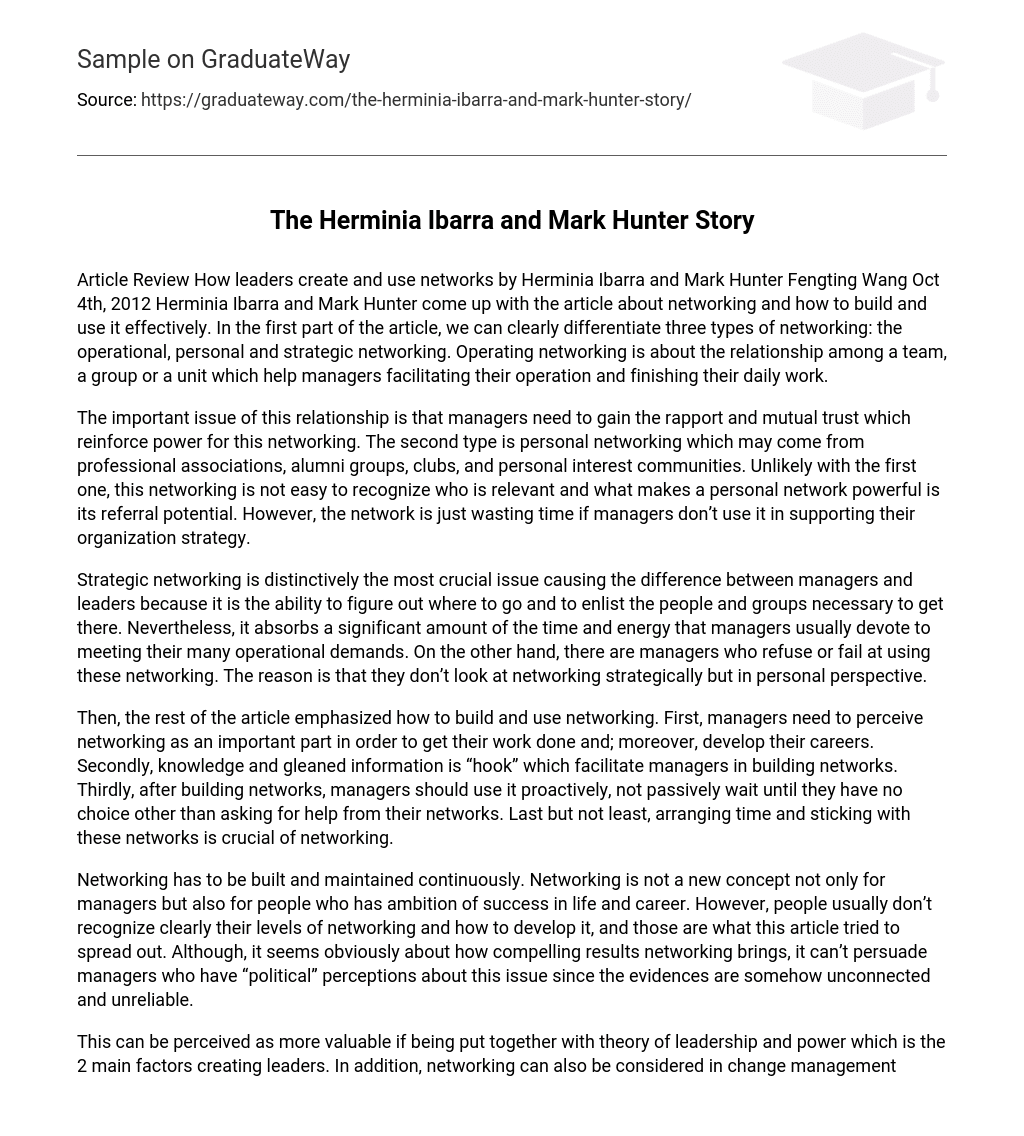Article Review How leaders create and use networks by Herminia Ibarra and Mark Hunter Fengting Wang Oct 4th, 2012 Herminia Ibarra and Mark Hunter come up with the article about networking and how to build and use it effectively. In the first part of the article, we can clearly differentiate three types of networking: the operational, personal and strategic networking. Operating networking is about the relationship among a team, a group or a unit which help managers facilitating their operation and finishing their daily work.
The important issue of this relationship is that managers need to gain the rapport and mutual trust which reinforce power for this networking. The second type is personal networking which may come from professional associations, alumni groups, clubs, and personal interest communities. Unlikely with the first one, this networking is not easy to recognize who is relevant and what makes a personal network powerful is its referral potential. However, the network is just wasting time if managers don’t use it in supporting their organization strategy.
Strategic networking is distinctively the most crucial issue causing the difference between managers and leaders because it is the ability to figure out where to go and to enlist the people and groups necessary to get there. Nevertheless, it absorbs a significant amount of the time and energy that managers usually devote to meeting their many operational demands. On the other hand, there are managers who refuse or fail at using these networking. The reason is that they don’t look at networking strategically but in personal perspective.
Then, the rest of the article emphasized how to build and use networking. First, managers need to perceive networking as an important part in order to get their work done and; moreover, develop their careers. Secondly, knowledge and gleaned information is “hook” which facilitate managers in building networks. Thirdly, after building networks, managers should use it proactively, not passively wait until they have no choice other than asking for help from their networks. Last but not least, arranging time and sticking with these networks is crucial of networking.
Networking has to be built and maintained continuously. Networking is not a new concept not only for managers but also for people who has ambition of success in life and career. However, people usually don’t recognize clearly their levels of networking and how to develop it, and those are what this article tried to spread out. Although, it seems obviously about how compelling results networking brings, it can’t persuade managers who have “political” perceptions about this issue since the evidences are somehow unconnected and unreliable.
This can be perceived as more valuable if being put together with theory of leadership and power which is the 2 main factors creating leaders. In addition, networking can also be considered in change management and emotional intelligence as well because a person cannot approach others and maintain networks without good emotional intelligence. Then, having networking is likely having a weather forecast for future change and the degree of accuracy and width of the forecast depend on the networks quality.





